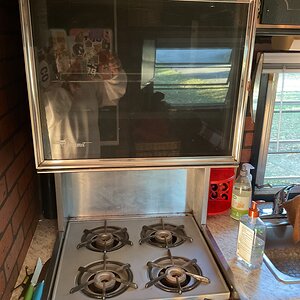Kevin D Pem
RVF 5K Club
- Joined
- Jul 29, 2020
- Messages
- 5,104
- Location
- AZ
- RV Year
- 1984
- RV Make
- Alpinelite
- RV Length
- 26'
- TOW/TOAD
- 2016 Ram 1500
- Fulltimer
- Yes
I would argue that lack of beadlocks make a tire much less likely to sustain damage during repair.
Unlike some of you, I never worked in a gas station, or tire shop. What I have done is change and fixed my own tires. Be it motorcycle, car, MH, trailer! I carry tire irons, and other tools for the job. Road side assistance, is roadside, after all! I don't camp on roads, or in parks. So out of necessity I fix my own.
The one thing I will not do is use a plug! They are considered a temporary fix and the fear of sudden release of air has me! Yes I have had blow outs when young, so will not risk those around me by using them!!!
To be clear! I have not heard an argument that shows me a reason to separate tire use when talking about reseating a bead!
Unlike some of you, I never worked in a gas station, or tire shop. What I have done is change and fixed my own tires. Be it motorcycle, car, MH, trailer! I carry tire irons, and other tools for the job. Road side assistance, is roadside, after all! I don't camp on roads, or in parks. So out of necessity I fix my own.
The one thing I will not do is use a plug! They are considered a temporary fix and the fear of sudden release of air has me! Yes I have had blow outs when young, so will not risk those around me by using them!!!
To be clear! I have not heard an argument that shows me a reason to separate tire use when talking about reseating a bead!












